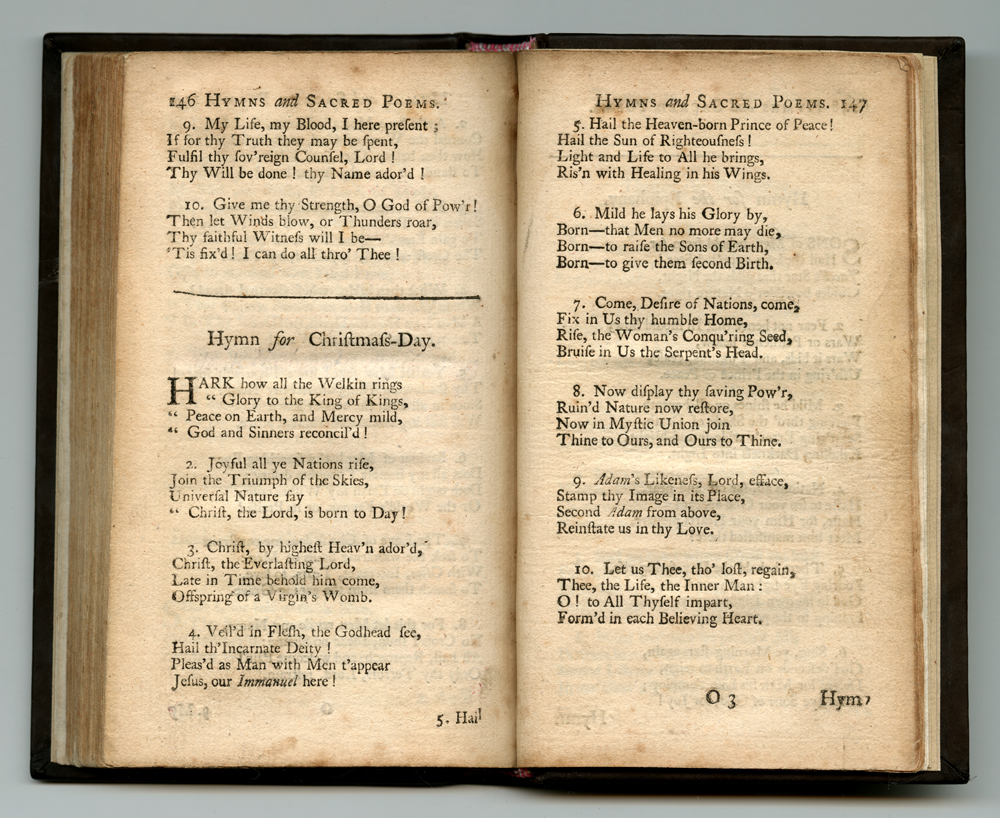I tend to ponder about things. Where they came from, who started them, yada yada yada. I drove my parents crazy I am sure. Luckily for me, the internet can usually answer all my questions. Today I was in a Christmas themed service and I none of the song credits were at the bottom of the screen, which naturally made me wonder…..Where exactly did these songs even come from? Here is what I learned,
Away In A Manger
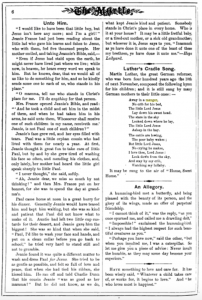
Composer
Lyrics said to be by Martin Luther
Musical compositions most well known were added to lyrics by William J. Kirkpatrick (1895) and James R. Murray (1887).
Date Composed
Unknown date for lyric composition but the lyrics first appeared publicly in May 1884, in The Myrtle, a periodical of the Universalist Publishing House in Boston, Massachusetts.[1]
Occasion for composition
Many have theorized that the lyrics were composed in honor of the 400th year celebration of Martin Luther, and were attributed to Luther as a marketing campaign. Unfortunately, it is still unknown if Luther ever penned the lyrics and if so, why he did so.
Geographic Origin
Boston Massachusetts if it’s not attributed to Luther. If attributed to Luther it would be Germany.
God Rest Ye Merry Gentelmen
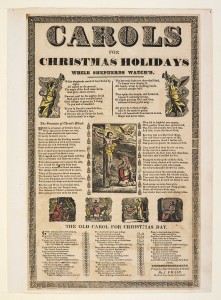
Composer
Unknown
Date Composed
16th Century sometime, according to The Hutchinson Concise Dictionary of Music, Routledge, 2014. The earliest known publication comes from 1760, in a publication from Bow Church-Yard, London.
While the 1760 edition can be difficult to find, an 1830 edition is reserved by the British Library. It was part of a Broadside publication of Christmas Carols.
Occasion for composition
Unknown
Geographic Origin
The first known lyrics originated from the London region, as do many of our early Christmas traditions.
Go Tell It On The Mountain
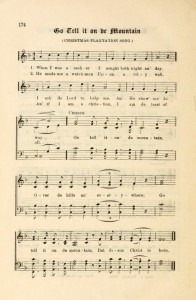
Composer
Compiled by John Wesley Work, Jr.
Date Composed
Believed to have been written around 1865.
The modern version created somewhere around the 1960’s.
Occasion for composition
The original version has little data concerning the purpose of the composition. Mostly likely existed in multiple African forms before being collected by Work Jr.
The modern version was popularized by Peter, Paul and Mary, along with their musical director, Milt Okun, adapted and rewrote “Go Tell It on the Mountain” as “Tell It on the Mountain”, their lyrics referring specifically to Exodus and using the phrase “Let my people go,” but referring implicitly to the Civil Rights struggle of the early 1960s.[1]
Geographic Origin
The origins are attributed to African-American folk music, so it is possible that both African and American influences lead to the compilation of this song. It is likely that it was African in origin due to the fact that John Wesley Work Jr. was an African American who frequently collected African works. Work lived in Tennessee at the time.
Hark The Herold Angels Sing
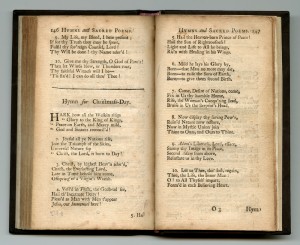
Composer
Charles Wesley
Date Composed
First appeared in 1739 in the collection Hymns and Sacred Poems.
Occasion for composition
The hymn was penned by Charles Wesley as a song to sing for Christmas day at church. Wesley wrote probably more hymns than any other composer in history.
The popular version we know today is the result of alterations by various hands, by Wesley’s co-worker George Whitefield who changed the opening couplet to the familiar one, and by Felix Mendelssohn. A hundred years after the publication of Hymns and Sacred Poems, in 1840, Mendelssohn composed a cantata to commemorate Johann Gutenberg‘s invention of the printing press, and it is music from this cantata, adapted by the English musician William H. Cummings to fit the lyrics of “Hark! The Herald Angels Sing”.[1][2]
Geographic Origin
London
Joy To The World
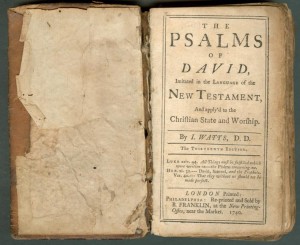
Composer
The words are by English hymn writer Isaac Watts, based on the second half of Psalm 98.
Date Composed
The song was first published in 1719 in Watts’ collection; The Psalms of David: Imitated in the language of the New Testament, and applied to the Christian state and worship.
The music was adapted and arranged to Watts’ lyrics by Lowell Mason in 1839 from an older melody which was then believed to have originated from Handel (The guy who wrote “The Messiah.”)
Occasion for composition
Watts wrote the words of “Joy to the World” as a hymn glorifying Christ’s triumphant return at the end of the age
Geographic Origin
Cheshunt area, just outside London.
Silent Night
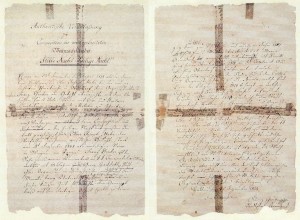
Composer
Franz Xaver Gruber and Joseph Mohr. Later edited by John F. Young
Date Composed
1818.
Occasion for composition
The song was first performed on Christmas Eve 1818 at St Nicholas parish church in Oberndorf, a village in the Austrian Empire on the Salzach river in present-day Austria.[1] It is probable that the song was composed specifically for the Christmas eve service.
Geographic Origin
Oberndorf bei Salzburg, Austria.
O Holy night
Composer
Lyrics by Adolphe Adam
The original musical composition was not intended for this song. It was written by poet Placide Chapeau. The original poem was titled “Minuit, chrétiens” (Midnight, Christians).
Date Composed
1847.
Occasion for composition
The poem was written for the Roquelaure church, at the end of the year 1843, the church organ was recently renovated. To celebrate the event, the parish priest asked Cappeau, native from this town, to write a Christmas poem. Cappeau did it, although being a professed anticlerical and atheist.[1]
The lyrics were added 4 years after the poem was created and were performed by Emily Laurey, at the Roquelaure church.
Geographic Origin
Roquelaure, southern France.
O Come, O Come Emmanuel
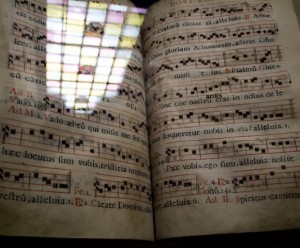
Composer
Original composition is unknown but typically attributed to the O Antiphons vespers in the 5th century.
Modern renditions believed to originate from the 12th century appears in Psalteriolum Cantionum Catholicarum, in the 1700s by various artists.
The musical composition is linked to Veni Emmanuel was first linked with Thomas Belmore, 1851.
Date Composed
15th Century sometime.
The first official publication was published in Cologne in 1710. This was in a hymnal first assembled by Jesuit hymnographer Johannes Herringsdorf in 1610. The publication was the seventh edition of Psalteriolum Cantionum Catholicarum.[1]
Thomas Belmore added the modern and well known metric to the lyrics in 1851.
The 1861 translation from Hymns Ancient and Modern is the most prominent by far in the English-speaking world.
Occasion for composition
Mostly unknown
Geographic Origin
Various
O Come All Ye Faithful
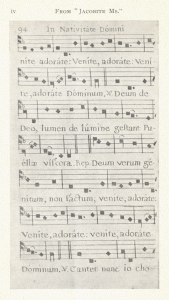
Composer
Original composition by John Francis Wade, in Latin.
Later revised by John Reading (1645–1692) and King John IV of Portugal (1604–1656).[1][2][3]
Date Composed
The oldest known manuscript is from 1751, titled Adeste Fiddles. Wade included it in his own publication of Cantus Diversi.
Translated into English in 1841, by Frederick Oakley.
Occasion for composition
Unknown
Geographic Origin
Unknown other than it was created as a Christmas song and first placed in the hymnal by John Wade, Cantus Diversi.
O Little Town Of Bethlehem
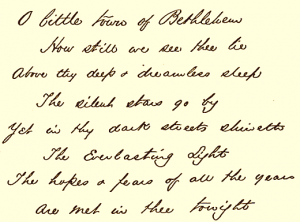
Composer
The lyrics were written by Phillips Brooks, an Episcopal priest, rector of the Church of the Holy Trinity, Philadelphia.
The music was done by Lewis Redner in the same year.
Date Composed
1865.
Most known musical arrangement came from an adjustment in 1868 by Lewis Redner.
Occasion for composition
The text was written after Phillips Brooks visited Bethlehem in 1865. He brought the lyrics back and his organists prepared music for it. It was first published in 1868 after Lewis Redner finalized the music accompaniment to the lyrics. It was performed in the Christmas service in 1868.
Geographic Origin
Bethlehem and Philadelphia.
